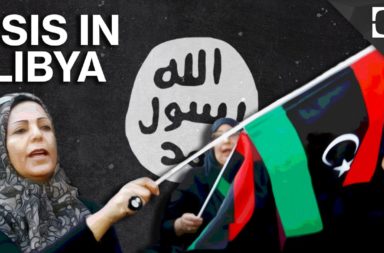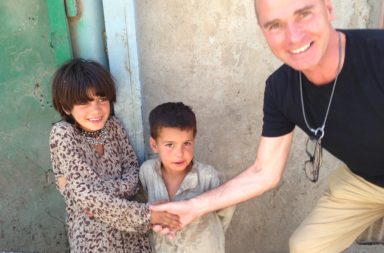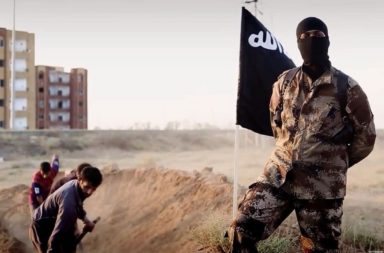In an interview with NPR U.S. president Obama defended his ISIS strategy against criticism from Republican candidates.
Now by a president of the Democratic party.
For the same fundamental reason America produced under Republican George W. Bush a lost victory in Iraq after 2003 because nobody in the White House has designed a creative and detailed grand strategy.
After an investment of more than 1300 billion dollars and the loss of 4,500 soldiers and 32,000 wounded, now Iraq is partly in the hand of ISIS, its Shiite government allied with arch-enemy Iran and the 2000 year long history of Christianity ruined.
This kind of naive planning in the National Security Council and the White House for the Middle East reminds since 12 years to a Swiss Cheese- too many holes, too little substance.
Globalo documents the main arguments of the President here, which show it is not better than under Bush:
“I think that it is very important for us to understand this is a serious challenge. ISIS is a virulent, nasty organization that has gained a foothold in ungoverned spaces effectively in Syria and parts of western Iraq.
We have to take it seriously. They’ve shown in Paris what they can do in an organized fashion, and in San Bernardino what we’ve seen is their ability to proselytize for their perverted brand of Islam and spur small-scale terrorist attacks. And those are very difficult to detect, so it is going to be important for us to be vigilant.
We are pounding ISIL’s core structure in Syria and Iraq. We have put together a coalition that is increasingly effective. We have seen ISIL lose about 40 percent of its populated territory in the region, and both in terms of homeland security and in terms of our efforts over there, I am confident that we are going to prevail.
But it is also important for us to keep things in perspective, and this is not an organization that can destroy the United States. This is not a huge industrial power that can pose great risks to us institutionally or in a systematic way. But they can hurt us, and they can hurt our people and our families. And so I understand why people are worried.
The most damage they can do, though, is if they start changing how we live and what our values are, and part of my message over the next 14 months or 13 months that I remain in office is to just make sure that we remember who we are and make sure that our resilience, our values, our unity are maintained. If we do that, then ISIL will be defeated.
What is important is for people to recognize that the power, the strength of the United States and its allies are not threatened by an organization like this; in the same way that al-Qaida was able to carry out one spectacular attack, we ended up making some significant changes to harden homeland defenses. It then took awhile for us to ultimately snuff out core al-Qaida in the FATA, and there are still lingering remnants, but at no point was there ever a sense that in fact it could do catastrophic damage to us.
And so if people haven’t seen the fact that in fact 9,000 strikes have been carried out against ISIL, if they don’t know that towns like Sinjar that were controlled by ISIL have been taken back, or that a town like Tikrit, that was controlled by ISIL, now has been repopulated by previous residents, then they might feel as if there’s not enough of a response.
And so part of our goal here is to make sure that people are informed about all the actions that we’re taking. But one of the interesting things that you’ve seen evolve over the last several weeks, including in the debates that are taking place between the Republican candidates, is that those who are critics of our administration response, or the military, the intelligence response that we are currently mounting, when you ask them, well, what would you do instead, they don’t have an answer.
And we are going after ISIL effectively. We are going after them hard. And we are confident that we are going to prevail.
We carry out precision strikes based on intelligence of where ISIL is, where their infrastructure is, where their oil tankers are. And if the suggestion is is that we kill tens or hundreds of thousands of innocent Syrians and Iraqis, that is not who we are and that would be a strategy that would have enormous backlash against the United States. It would be terrible for our national security.
But as I explained, and I’ve tested this repeatedly with our military intelligence folks, when you start looking at an Iraq-type deployment of large numbers of troops — 20,000, 30,000, 40,000 troops — we are now in a situation in which we are committing ourselves not only to going door to door in places like Mosul and Raqqa, which I’m confident that we could do, but we have essentially said to the Iraqis and the Syrians that we are going to govern for you. And that ends up being of an indefinite period.
So part of what we have to do for a sustained defeat of ISIL is to help local forces develop capacity, do it the right way, do it for themselves with our assistance and our help, so that we can actually create a stable government structure in this region. Now that sometimes requires more patience than simply deploying a bunch of Marines. Our fighting forces are the best in the world, but in order to defeat an enemy like this, what we have to do is have a situation in which people can govern.
We are already doing special forces who are going to help us gather that intelligence and help advise and assist and train local forces so that they can go after ISIL in areas like Raqqa and Mosul.
The other new thing that people have suggested would be some variation of the no-fly zone or a safe zone. This is something we’ve been talking about for three or four years. The challenge there is that ISIL doesn’t have an air force, so the damage done there is not against ISIL, it’s against the Syrian regime.
And what is absolutely true is that we need to make sure that we bring about an end to the civil war in Syria, and John Kerry, through the work he’s been doing in Vienna negotiations and this week in New York, is seeing some progress in bringing Russians and Iranians together but creating a safe zone for Syrian refugees. We’ve tested, we’ve looked at repeatedly, the problem is that, again, without a large number of troops on the ground, it’s hard to create a safe zone like that. And that doesn’t solve the ISIL problem.
The diplomacy I think is critically important because to the extent that we can get the Syrian regime, Iran, Russia to recognize what we believe is the core threat, which is ISIL, and the disintegration of social order in Sunni-controlled areas in Iraq and Syria, the more effective and faster we can go.”





